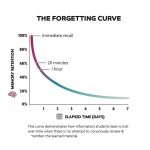Note taking has become a bit of a focus for many right now. In my experience it is a skill or tool that many students over the past few years (as a result of lockdowns and remote learning) struggled with or just didn’t do unless asked. Therefore the purpose of this blog is to get students back to using notes effectively to assist them with their learning. More importantly I share below my top 3 note taking tips for students.
What is note taking?
The purpose of note taking is to record key information about a topic or subject so that one can refer to it at a later stage. Note taking forces students to pay attention, focus and better understand information and identify the main concepts. It actually helps a student to learn!
Notes then act as a reference for students when preparing for tasks, assignments, assessments or exams.
Should students write or type notes?
The debate around this continues to go on and on. This is something that regularly comes up in discussions with both students and parents – which is more effective? Both of these methods can have a purpose. It really is up to individual students to determine what is going to be the most effective approach to support them with their learning. In my experience I believe younger students should always write their notes to practice noting information down as often they are really not sure what information to write and why they should be recording it. 
More and more I am seeing many schools that actually tend to provide booklets, notes, handouts, power points and so on to students rather than having them take notes in class. Unfortunately then students tend to just rely on this information and as a result are not actually putting that learning into their long term memory where it needs to be and are often then unable to recall the information at a later stage.
There have been many studies done over the years and time and time again they generally all come back in favour of students writing rather than typing as they tend to have better recall, understanding and better knowledge. Whilst writing can be slower and sometimes students struggle to get it all down this process at least forces them to listen, digest and work out what information they need to note. Where as whilst typing is often faster and students can take down more notes they can tend to just transcribe the information rather than actually take note of it.
Having said that I still believe it is up to individual students to decide and use which method best suits them with their learning, knowledge and recall. A student is more likely to get better at note taking if they get to own the method they choose rather than being forced into doing it a certain way.
My top 3 note taking tips for students
- Look at and review notes on a regular basis – in my experience the majority of students who take notes in class usually won’t look at them other than when preparing for a test
 or exam. Regularly students will tell me they feel they understand their subject content only to find in test or exam situations it abandons them. This is what I refer to as the ‘Illusion of knowing‘ – all the information hasn’t made its way to their long term memory where it sticks. A tool that explains this further is the forgetting curve and here is a link to a recent blog I wrote about this.
or exam. Regularly students will tell me they feel they understand their subject content only to find in test or exam situations it abandons them. This is what I refer to as the ‘Illusion of knowing‘ – all the information hasn’t made its way to their long term memory where it sticks. A tool that explains this further is the forgetting curve and here is a link to a recent blog I wrote about this. - Summarising notes – this is such an important step to take to consolidate a students learning. When a student takes notes in class they are in fact often the teachers notes. A student doesn’t usually have a lot of time to actually think about them and focuses on just getting them down. What they then need to be doing is to make them more concise, shorter and actually in their own words. With a student making their own notes it consolidates their own learning, will improve results and ensure they feel more confident and competent going into test or exam situations. You will usually see less test and exam anxiety as well. The best time to summarise notes is when a student finishes a topic and this can usually form part of the revision process.
- Updating and adding to notes – when a student receives feedback following a test or an assessment, it is important to spend time reflecting and where
 necessary updating their notes accordingly. For example if a student missed marks in a particular area or didn’t do well somewhere, then they need ensure their notes are updated with any further details they may need to assist and consolidate their learning. Unfortunately many students actually don’t undertake this part of the process and therefore come exam time forget what it was they didn’t do well in and don’t have any updated reference to assist them further at that time. This usually means more time is required to revise and learn the necessary information usually from scratch.
necessary updating their notes accordingly. For example if a student missed marks in a particular area or didn’t do well somewhere, then they need ensure their notes are updated with any further details they may need to assist and consolidate their learning. Unfortunately many students actually don’t undertake this part of the process and therefore come exam time forget what it was they didn’t do well in and don’t have any updated reference to assist them further at that time. This usually means more time is required to revise and learn the necessary information usually from scratch.
The main key with note taking is to ensure a student actually has notes in the first place – whether they be written or typed. From there, as noted above, it is a matter of what a student does with them as to what impact it has on their knowledge and learning!
For more information on how I might be able to assist as student please don’t hesitate to get in touch – send me an email and we can arrange a time to speak.


